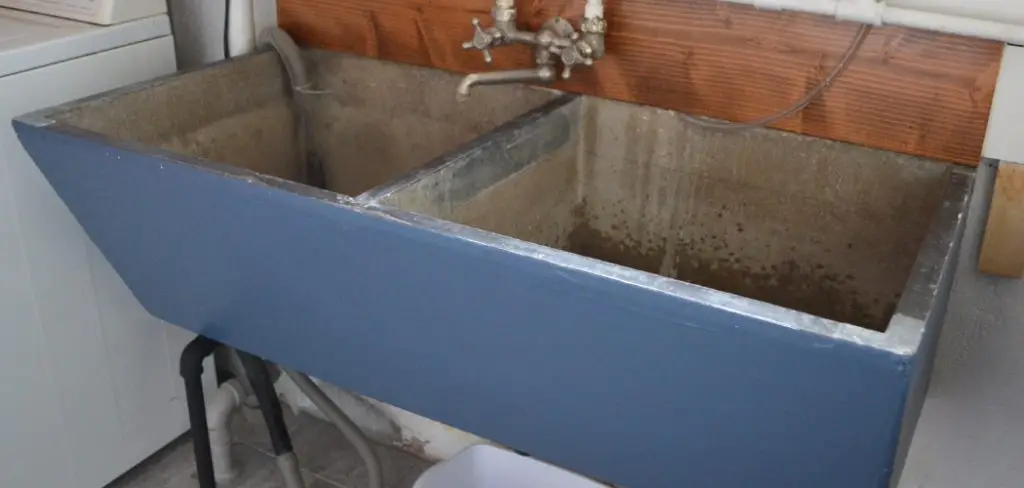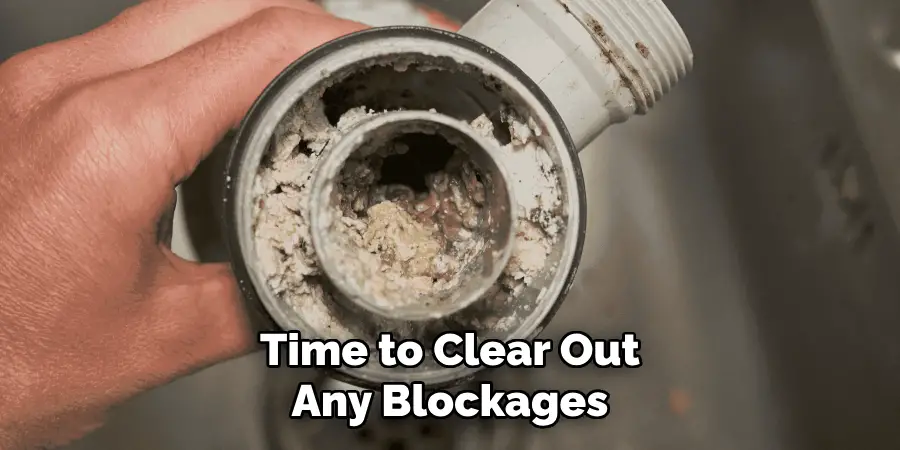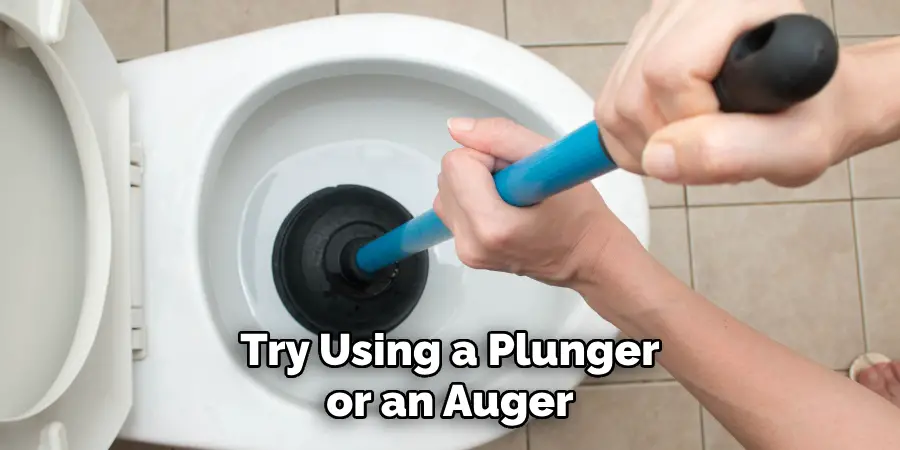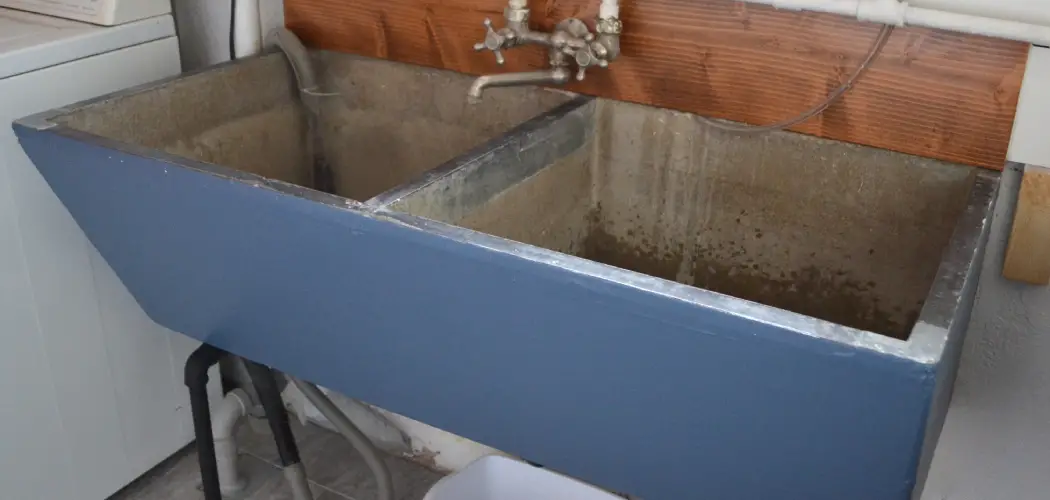Are you dealing with a clogged basement sink? Before panicking over a seemingly difficult clog, know that there are actually measures you can take to fix it without having to call in a professional.

Unclogging your basement sink doesn’t have to be daunting or overly complicated – just follow along the steps outlined in this blog and you’ll soon restore your river-like sink back to working condition! Read on for tips and tricks on how to unclog basement sink, so your plumbing will be running smoothly again.
Step by Step Guidelines on How to Unclog Basement Sink
Step 1: Disconnect the Trap
The first step in learning to unclog a basement sink is to disconnect the trap. To do this, you’ll need a pair of pliers and an adjustable wrench. First, loosen the trap nuts connecting them to the drainage pipes with your wrench. Once loose, gently tug on the trap until it’s completely separated from the pipes.
Step 2: Clear Out Any Blockages
Once you’ve successfully disconnected the trap, it’s time to clear out any blockages that may be present. Check for any debris or obstructions in the trap and remove them with your pliers. After that, check the drainage pipe itself for any blockages as well. If there are any, use your pliers to clear them away.

Step 3: Clean the Trap
Now that all of the blockages have been removed, it’s time to clean the trap itself. Simply run some warm water through the trap for a few minutes and ensure everything is properly cleaned out. Once this is done, reattach the drain trap to the pipes. While doing so, make sure to use the adjustable wrench to tighten the trap nuts firmly.
Step 4: Run Hot Water
Once your sink is reattached, it’s time to run some hot water down the drain. This will help to flush out any further debris that might be present and help clear the blockage. Let the hot water run for a few minutes before attempting to use the sink again. If the sink still remains clogged, then go to Step 5.
Step 5: Use a Plunger
If the water still isn’t running properly, use a plunger to dislodge any further debris that might be in the way. Begin by covering the entire drain with your plunger and pumping it up and down firmly for about 20 seconds. After that, take a few minutes to let the water settle before trying to run it again.
Step 6: Use Drain Cleaners
As a last resort, you can try using chemical drain cleaners or boilers to help clear out any clogs in your basement sink. Make sure to follow all directions on the packaging and only use these products as directed. Also, remember to wear gloves and eye protection while using them as some of the chemicals can be dangerous if handled improperly.

By following these steps, you’ll be able to unclog your basement sink in no time. With patience and the right tools, you can get your plumbing back to working order quickly and efficiently. Don’t be afraid to tackle a clogged sink on your own – just follow these simple instructions and you’ll soon have the problem fixed! Good luck!
Additional Tips and Tricks to Unclog Basement Sink
- Use a wet/dry vac to suction out any remaining particles in the pipes. Be sure to wear protective gear when using this method.
- If you have access to a plumbing snake, use it to break up any clogs in the pipes, such as hair or debris.
- Keep a bottle of drain cleaner on hand at all times to quickly unclog your basement sink when necessary.
- Make sure that you are using non-corrosive cleaners and follow package directions carefully.
- If you can’t seem to break through the clog with any of these methods, call a plumber who can help you to get things back on track.
- Additionally, consider using a mesh sink strainer in order to avoid clogs in the future. This will catch food particles and other debris before they make their way down the drain.
- Finally, be sure to keep your basement sink clean and free from any debris to ensure it is functioning properly and won’t clog in the future. Regularly clearing out the sink of dirt and dust will help to avoid any problems down the road.
Following these tips and tricks will help you to keep your basement sink unclogged and functioning properly. With a little care and maintenance, you can ensure that your basement sink remains free from clogs and is able to handle whatever comes its way.
Things You Should Consider to Unclog Basement Sink
If your basement sink is clogged, there are a few steps you should take before trying to unclog it. Here are a few things to consider when dealing with a clogged sink:
1. Make sure the water is turned off at the source – Before attempting any repairs or maintenance, make sure that the water supply is completely shut off at the source.
2. Check for any visible debris or obstructions – If you can see any items that are blocking the flow, such as hair build-up, food residue, or other objects, remove them carefully using a pair of pliers or a similar tool.
3. Consider a chemical-based cleaning agent – For tougher clogs, consider using a chemical-based cleaning agent formulated to break down blockages. Be sure to follow the product instructions carefully and wear protective gloves while handling it.
4. Try using a plunger or an auger – If your sink is still clogged after trying the above steps, try using a plunger or an auger to break down the obstruction. Make sure that you are wearing safety glasses and gloves when using these tools.

5. Contact a professional plumber – If all else fails, contact a professional plumber for assistance. They will be able to assess the situation and determine the best course of action for unclogging your sink.
Following these considerations can help ensure that you unclog your basement sink safely and successfully. If you have any questions about how to unclog your sink, contact a professional plumber for assistance.
Frequently Asked Questions
What Causes a Clogged Basement Sink?
A clogged basement sink is usually caused by food particles, grease, soap scum, and other debris that accumulates in the drain pipe over time. This can cause water to back up in the pipes and create a clog. In some cases, tree roots or other objects may also become stuck in the pipes and cause a clog.
How Can I Prevent My Basement Sink from Becoming Clogged?
The best way to prevent your basement sink from becoming clogged is to avoid putting large or fibrous food particles, grease, and other debris down the drain. Make sure to scrape off any excess food before washing dishes in the sink.
You should also consider installing a mesh filter over the drain pipe to catch any small debris that may try to pass through. Additionally, regularly pouring boiling water down the sink can help loosen up any clogs that may be forming.
Finally, consider having a professional plumber inspect your basement plumbing system to ensure it is in good working order and free from blockages. By following these tips, you can help keep your basement sink clog-free and running smoothly.
What Should I Do if My Basement Sink Has Already Become Clogged?
If your basement sink has become clogged, the first thing you should do is turn off the water supply. Then, try using a plunger to break up the blockage and clear it out of the pipe. If this does not work, you may need to use chemical drain cleaners or a professional snake auger to remove larger clogs from deeper into the pipes.
If your clog is particularly difficult to remove, you may need the help of a professional plumber. They will be able to use specialized tools to clear out any stubborn blockages and get your basement sink running properly again.
What Are the Maintenance Tips for a Basement Sink?
To keep your basement sink functioning properly, it is important to take good care of it. Make sure to clean out the drain periodically with a pipe cleaner or vinegar solution to help prevent any buildup in the pipes. Additionally, you should avoid pouring grease and other fats down the drain as they can easily clog up the pipes.
Finally, consider having a professional plumber inspect your basement plumbing system regularly to ensure there are no underlying issues that need addressing. With proper maintenance and care, you can help keep your basement sink running smoothly for years to come.

Conclusion
All in all, knowing how to unclog basement sink can be a daunting task. By following the tips and tricks outlined in this article, you can help prevent your basement sink from becoming clogged and maintain it for years to come. If problems persist, don’t hesitate to contact a professional plumber as they will have the experience and tools necessary to get your sink running properly again. With these tips, you can keep your basement sink clog-free and run smoothly. Good luck!

